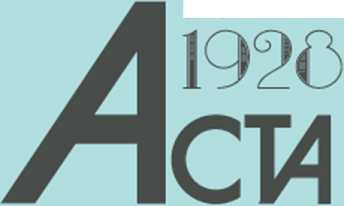7538015048
RESEARCH PAPER
Acta Neurobiol Exp 2019,79: 386-398 DOI: 10.21307/ane-2019-036
sińce

NEUROBIOLOGUE
EXPERIMENT4US
When is the brain ready for mental actions? Readiness potential for mental calculations
Maciej Raś1, Agnieszka M. Nowik1, Andrzej Klawiter2 and Grzegorz Króliczak1*
'Action and Cognition Laboratory, Institute of Psychology, Faculty of Social Sciences,
Adam Mickiewicz University in Poznan, Poznan, Poland,2Seaion of Logic and Cognióve Science,
Institute of Psychology, Faculty of Social Sciences, Adam Mickiewicz Universityin Poznan, Poznan, Poland,
* Email: krolgreg@amu.edu.pl
While che preparatory neural mechanisms of real and imagined body movemencs have been extensively studied. che underpinnings of self initiaced. voluncary mencal acCs are largely unknown. Therefore. using elecCroencephalography (EEG). we sCudied che Cime course and paccerns of changes in brain accivicy associated wich purely mencal processes which scarc on cheir own. wichouc an excernal or incerocepcive scimulacion. We compared EEG recordings for decisions co perform mencal operacions on numbers. imagined finger movemencs. and accual finger movemencs. In all chree cases. we found scriking similaricies in slow negacive shifcs of brain elecCrical activicy lascing around 1 s and. cherefore. characceriscic for readiness potencial. These resulcs show chac che brain noc only needs cime co be ready for a purely mencal cask buc also chac a required preparacory interval involves neural changes analogical co che ones observed before incencional body movemencs. As such. che readiness pocencial represencs a universal process of unconscious preparacory brain activicy preceding any. induding purely mencal. voluncary action.
Key words: volition. mencal accions, readiness pocencial. machemacical abilicy. Libets experimenc
C 2019 by Acta tJairobtokglae ErptrimaitaJls
INTRODUCTION
Imagine that you are a skillful crossword puzzle soIver and have just bought your favorite new brain teaser. You start reading the clues and stop by one which seems easy to answer. It does not mean that the correct word simply pops up in your mind. You must perform a sequence of operations: find candidates for a solution, examine them carefully and select the one which best fits the meaning expressed in the clue. Af-ter solving this task, you choose the next clue and en-gage in further mental efforts until all the blanks are filled in. Assuming that every process of selecting the clue and finding a solution was freely initiated and performed without any external support from friends, books, or electronic devices, one could say that it is a paradigmatic example of an important kind of a cog-nitive task. Its aim is not to find out what is happening in the immediate surroundings but to set the mind in motion to produce a purely mental result. This finding can later be expressed verbally but then it is only an announcement of a previous solution. Such an an-nouncement is completely different from, for example, an “intention to move” because the effect of the latter is a real or imagined movement (expressed either as co-vert or overt bodily change), not a purely mental result.
There are many examples of these kinds of mental exercises, including the classic ones, such as mathe-matical calculations performed without any external supports. Could such mental acts be studied from an outside, non-egocentric perspective? To address this question, we focused on the brain’s electrical activ-ity associated with the initiation of digit addition as a purely voluntary mental act.
The most commonly studied voluntary motor actions so far are typically preceded by specific brain activity
Received 29 March 2019, accepted S August 2019
r^ exeley
Wyszukiwarka
Podobne podstrony:
Kołtuska B, Grabowska A. Instability of hemispheric asymmetry in dyslexic children. Acta Neurobiol.
How to write research paper Live WebinarSubscribe to our For live webinar, Publication help, And mor
Davies0003 What is a research paper? A research paper is a piece of academic writing that requires a
RESEARCH ARTICLE Received: 11.11.2019 Accepted: 28.02.2020 A - Study Design B - Data Collection
Finanse, Rynki Finansowe, Ubezpieczenia nr 1/2016 (79) s. 205-211 DOI: 10.18276/frfu.2016.79-15Jakoś
Prot. (Associate PMS Science & Research) dr med. dent. Armin Nedjat 5-7 września 2019 \m Ch Wykł
Effect Of Dividends On Stock Prices 12 4. Research Methodology This paper has used the Panel data ap
79 79 e n t Why project time period. We have no data on what percentage of researchers succeeds in c
Acta Chromałographica 21(2009)4, 513-530 DOI: 10.1556/AChrom. 21.2009.4.1 Original Research
Spring 2019 Research Stats count Jan Feb Mar Apr May
66 Małgorzata Skibińska v Information behaviour ofthe researcher ofthe futurę - a CIBER briefing pap
Obraz (79 Andrzej Sapo ta, Małgorzata Skrzypińska-Gawn/siak researchers can assume that the anilinę
Acta Oeconomica Volume 69 Special Issue 1 2019 vO vO o Z o UJ O Z D O u. 0 Editor-in-Chief ■
więcej podobnych podstron